Amazon union vote may spark more union pushes
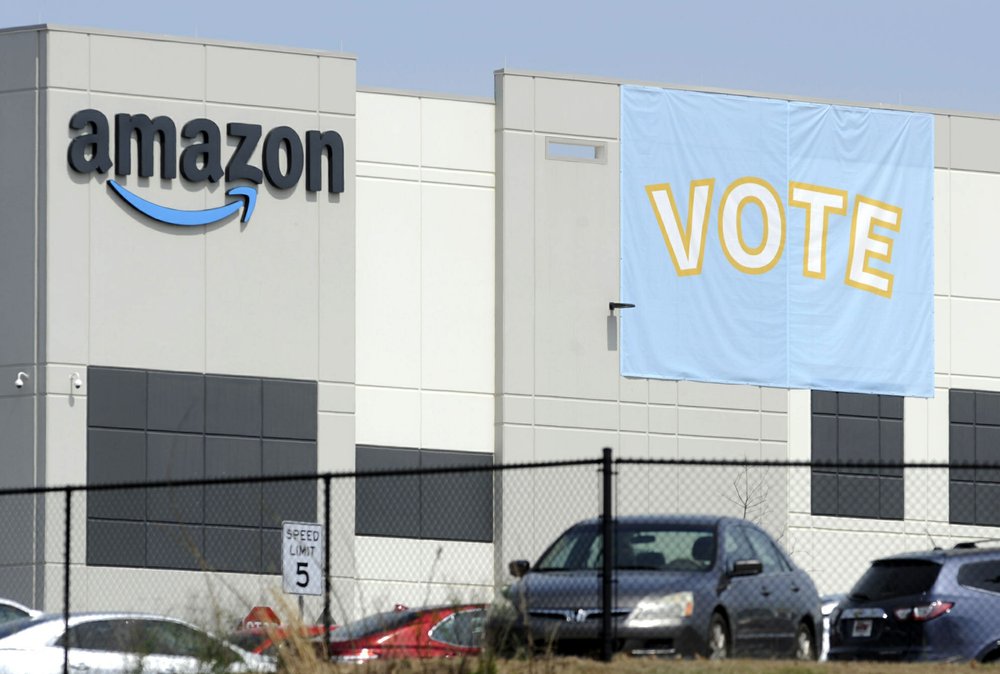
What happens inside a warehouse in Bessemer, Alabama, could have major implications not just for the country’s second-largest employer but the labor movement at large. Organizers are pushing for some 6,000 Amazon workers there to join the Retail, Wholesale and Department Store Union on the promise it will lead to better working conditions, better pay, and more respect. Amazon is pushing back, arguing that it already offers more than twice the minimum wage in Alabama and workers get such benefits as health care, vision, and dental insurance without paying union dues. The two sides are fully aware that it’s not just the Bessemer warehouse on the line. Organizers hope what happens there will inspire thousands of workers nationwide — and not just at Amazon — to consider unionizing and revive a labor movement that has been waning for decades. “This is lighting a fuse, which I believe is going to spark an explosion of union organizing across the country, regardless of the results,” says RWDSU president Stuart Appelbaum. The union push could spread to other parts of Amazon and threaten the company’s profits, which soared 84% last year to $21 billion. At a time when many companies were cutting jobs, Amazon was one of the few still hiring, bringing on board 500,000 people last year alone to keep up with a surge of online orders. Bessemer workers finished casting their votes on Monday. The counting begins on Tuesday, which could take days or longer depending on how many votes are received and how much time it takes for each side to review. The process is being overseen by the National Labor Relations Board and a majority of the votes will decide the final outcome. What that outcome will be is anyone’s guess. Appelbaum thinks workers who voted early likely rejected the union because Amazon’s messaging got to them first. He says momentum changed in March as organizers talked to more workers and heard from basketball players and high-profile elected officials, including President Joe Biden. For Amazon, which employs more than 950,000 full- and part-time workers in the U.S. and nearly 1.3 million worldwide, a union could lead to higher wages that would eat into its profits. Higher wages would also mean higher costs to get packages to shoppers’ doorsteps, which may prompt Amazon to raise prices, says Erik Gordon, a professor at the University of Michigan’s Ross School of Business. In a statement, Amazon says it encouraged all its employees to vote and that “their voices will be heard in the days ahead.” Any push to unionize is considered a long shot since labor laws tend to favor employers. Alabama itself is a “right-to-work” state, which allows workers in unionized shops to opt-out of paying union dues even as they retain the benefits and job protection negotiated by the union. Kent Wong, the director of the UCLA Labor Center, says companies in the past have closed stores, warehouses, or plants after workers have voted to unionize. “There’s a history of companies going to great lengths to avoid recognizing the union,” he says. Walmart, the nation’s largest retailer, and biggest private employer has successfully fought off organizing efforts over the years. In 2000, it got rid of butchers in 180 of its stores after they voted to form a union. Walmart said it cut the jobs because people preferred pre-packaged meat. Five years later, it closed a store in Canada where some 200 workers were close to winning a union contract. At the time, Walmart said demands from union negotiators made it impossible for the store to sustain itself. The only other time Amazon came up against a union vote was in 2014 when the majority of the 30 workers at a Delaware warehouse turned it down. This time around, Amazon has been hanging anti-union signs throughout the Bessemer warehouse, including inside bathroom stalls, and holding mandatory meetings to convince workers why the union is a bad idea, according to one worker who recently testified at a Senate hearing. It has also created a website for employees that tells them they’ll have to pay $500 in union dues a month, taking away money that could go to dinners and school supplies. Amazon’s hardball tactics extend beyond squashing union efforts. Last year, it fired a worker who organized a walkout at a New York warehouse to demand greater protection against coronavirus, saying the employee himself flouted distancing rules. When Seattle, the home of its headquarters, passed a new tax on big companies in 2018, Amazon protested by stopping construction of a new high-rise building in the city; the tax was repealed four weeks later. And in 2019, Amazon ditched plans to build a $2.5 billion headquarters for 25,000 workers in New York after pushback from progressive politicians and unions. Beyond Amazon is an anti-union culture that dominates the South. And unions have lost ground nationally for decades since their peak in the decades following World War II. In 1970, almost a third of the U.S. workforce belonged to a union. In 2020, that figure was 10.8%, according to the U.S. Bureau of Labor Statistics. Private sector workers now account for less than half of the 14.3 million union members across the country. Advocates say a victory would signal a shift in the narrative about unions, helping refute the typical arguments from companies, including Amazon, that workers can win adequate compensation and conditions by dealing with management directly. “It is because of unions that we have a five-day workweek. It is because of unions that we have safer conditions in our places of work. It is because of unions that we have benefits,” says Rep. Terri Sewell, whose congressional district includes the Amazon facility. “Workers should have the right to choose whether they organize or not.” Union leaders are circumspect about specific organizing plans after the Bessemer vote, and Appelbaum says he doesn’t want to tip off Amazon to any future efforts. But there is broad consensus that a win would spur workers at some of the 230 other Amazon warehouses to mount
Dems draw on civil rights history to push Amazon union vote

Some Democratic members of Congress and national union leaders on Friday sought to rustle up support for unionizing a massive Amazon facility outside Birmingham, comparing Alabama workers’ organizing campaign to the civil rights movement. Mail voting by about 6,000 workers at the sprawling distribution facility began in February and runs through the end of March. It’s the largest organizing attempt in Amazon’s history, carrying high stakes for the second-largest employer in the country, which has a record of crushing unionizing efforts at its warehouses and its Whole Foods grocery stores. The outcome is critical for Amazon and organized labor in general. If the Alabama effort succeeds, it could set off a chain reaction across Amazon’s operations nationwide, with thousands more workers demanding better working conditions and seeking collective bargaining. It also would be seen as a boon to other labor sectors in the historically anti-union South and beyond. U.S. Rep. Terri Sewell, whose Alabama congressional district includes the Bessemer facility, welcomed four fellow members of the House Democratic Caucus to draw attention to the vote. Sewell noted that the delegation’s visit comes days before Selma, her hometown, commemorates Bloody Sunday and the Voting Rights March of 1965. “These workers are following a rich tradition … of crusading against something that is wrong,” Sewell said, echoing some workers’ contention that Amazon’s working conditions and pay are inadequate. “The world is watching Alabama once gain,” she said. “Birmingham, Bessemer, it’s so important that the world knows that once again Alabama is standing up for civil rights and human rights.” Reps. Nikema Williams of Georgia, Cori Bush of Missouri, Andy Levin of Michigan and Jamal Bowman of New York traveled to Alabama to meet with Amazon employees and officials from the Retail, Wholesale and Department Store Union that is seeking to organize workers. The group gathered at the union headquarters and also went to an intersection outside the Amazon complex. The visit comes ahead of next week’s expected House vote on the PRO Act, a union-backed proposal intended to strengthen workers’ ability to organize into collective bargaining unions. Lawmakers said they expect the measure to pass the Democratic-controlled House but acknowledged it faces an uphill battle in the 50-50 Senate, where Republican opposition is likely enough to prevent the act from securing the 60 votes required to pass most major legislation. At the Alabama facility, a majority of the 6,000 workers would have to vote “yes” to organize the facility. Amazon sought unsuccessfully to delay the vote and to require in-person voting. The company, which has seen profits and revenues spike upward during the pandemic, has campaigned hard to persuade workers that a union will only cost them money. Company officials say workers already get what they’d seek with a union: benefits, career growth and pay that starts at $15 an hour. Others dispute that. Levin, the Michigan congressman who was once a union organizer, called it “the most important election for the working-class people of this country in my lifetime.” Republished with the permission of the Associated Press.
Joe Biden states Alabama unionization is “a vitally important choice”
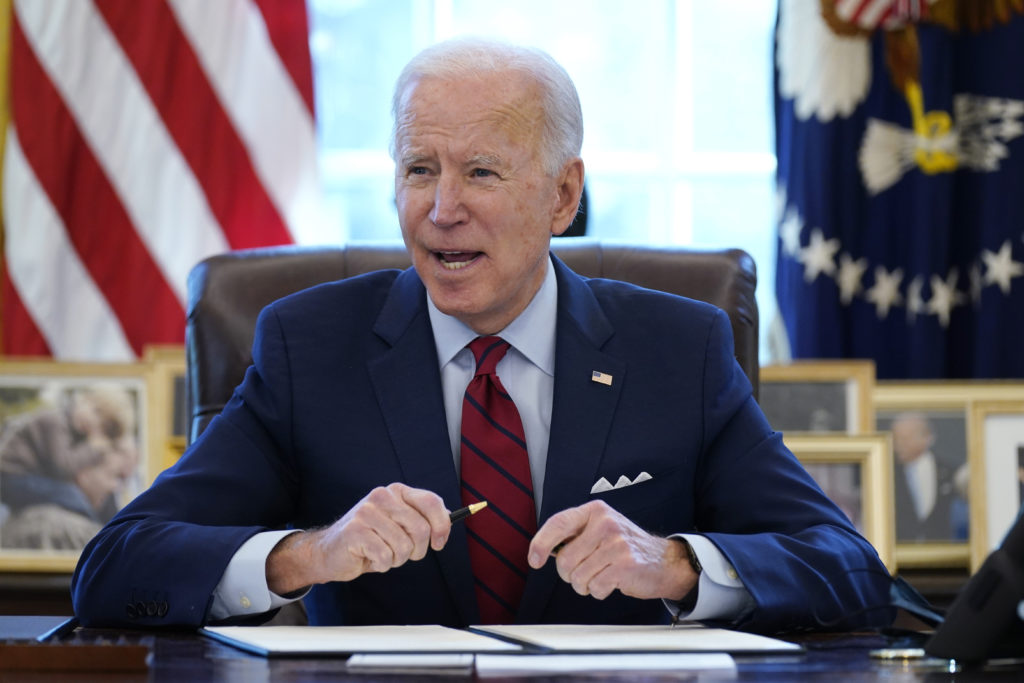
President Joe Biden weighed in on the fight Alabama Amazon workers are in regarding unionization. Amazon workers in Bessemer, Alabama, are close to becoming the first to form a union at Amazon. The last time this happened at Amazon was back in 2014 at a warehouse in Delaware. According to the New York Times, this move is a major milestone for organized labor, which has tried unsuccessfully to make headway at Amazon to no avail, reported Alabama Today. President Biden posted on Twitter, “Workers in Alabama – and all across America – are voting on whether to organize a union in their workplace. It’s a vitally important choice – one that should be made without intimidation or threats by employers. Every worker should have a free and fair choice to join a union.” The tweet also had a video with more details on his stance. Workers in Alabama – and all across America – are voting on whether to organize a union in their workplace. It’s a vitally important choice – one that should be made without intimidation or threats by employers. Every worker should have a free and fair choice to join a union. pic.twitter.com/2lzbyyii1g — President Biden (@POTUS) March 1, 2021 According to the Associated Press, Amazon has tried to delay the vote in Bessemer. One way was to deny mail-in voting. However, that attempt failed, and voting by mail started in mid-February. It will continue until the end of March. A majority of the 6,000 employees have to vote “yes” to unionize successfully. Amazon spokeswoman Rachael Lighty argues that Amazon already offers workers the benefits of a union, including pay that starts at $15 an hour. However, some workers argue that Amazon is extremely strict about production, which requires workers to be on their feet most of their 10-hour shift. One Bessemer worker, Jennifer Bates, reported they only offer one 30 minute lunch break. Bathroom breaks are closely monitored, as are getting a drink of water or getting new work gloves. Amazon denies these allegations.
Amazon warehouse workers in Bessemer, Alabama to vote on union
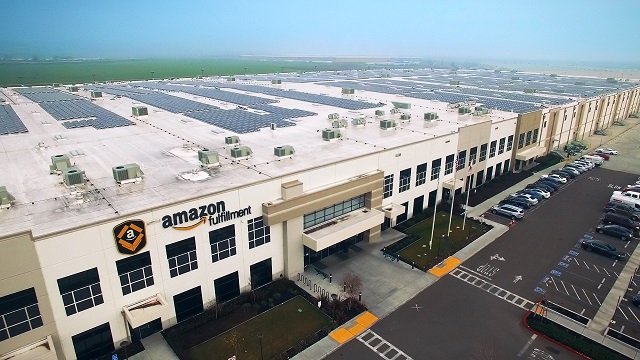
Amazon workers at an Alabama warehouse will vote next week on whether to unionize in one of the most visible labor-organizing pushes at the online retailing giant. Employees at the Bessemer facility are seeking to form a union to represent the full and part-time workers at the center. The employees are seeking to be represented by the Retail, Wholesale and Department Store Union. Mail-in balloting begins Feb. 8, under a decision posted last month by the National Labor Relations Board. “We face outrageous work quotas that have left many with illnesses and lifetime injuries,” the site reads. The site takes the familiar swoosh on the Amazon logo and turns it upside down to look like a frown. Amazon has said that since the warehouse opened in March, it has created thousands of full-time jobs in Bessemer, with average pay of $15.30 an hour, including full healthcare, vision and dental insurance. Republished with the permission of the Associated Press.
Amazon workers in Bessemer one step closer to unionization

A group of Amazon workers in a warehouse in Bessemer, Alabama has moved closer to a vote to decide to form a union. The last time this happened at Amazon was back in 2014 at a warehouse in Delaware. According to the New York Times, this move is a major milestone for organized labor, which has tried unsuccessfully to make headway at Amazon to no avail. As Al.com reported, the Bessemer facility notified the National Labor Relations Board (NLRB) on Nov. 20 that they want to hold an election to create a bargaining unit that would cover 1,500 full-time and part-time workers and would be represented by the Retail, Wholesale and Department Store Union (RWDSU). The latest hearings helped to decide which workers could vote and could cover over 5,800 employees, including full-time and seasonal workers. If this campaign is successful, it could lead to other workers trying the same thing at other Amazon warehouses. Amazon has more than 800,000 employees, second only to Walmart. Hourly Amazon workers have never formed or joined a union in the U.S.; neither have employees at Walmart. The RWDSU is a union organization with over 80 years of history. They’ve successfully helped unionize major retailers like H&M, Zara, and Macy’s. “We don’t believe this group represents the majority of our employees’ views,” an Amazon spokeswoman, Heather Knox, said in a statement about the union. “Our employees choose to work at Amazon because we offer some of the best jobs available everywhere we hire, and we encourage anyone to compare our overall pay, benefits, and workplace environment to any other company with similar jobs.” Maria Figueroa, director of labor policy and research at Cornell University’s Worker Institute stated, “If Amazon were to eventually agree to a union contract, it would send a signal to the entire retail and e-commerce industry that it is possible.” The current issue is whether voting should occur in person or by mail. Amazon wants the vote to be in person, but the National Labor Relations Board (NLRB) is concerned because of the high rate of coronavirus in the Bessemer area. The NLRB regional office is expected to decide on the voting issue in January. “Our interest is in making sure there is an election soon,” Richard Rouco, a lawyer for the union, said on Monday.
How Amazon picked the prime site for its $325 million Alabama fulfillment center

Annual payroll at the high-tech facility will top $46 million.
Daniel Sutter: Amazon is not the king of Queens

Amazon announced last year that it would build part of its new second headquarters facility, dubbed HQ2, in Queens, New York. In February, Amazon abandoned these plans. The episode offers insights on government-business relations in America today. The saga began in September 2017 when Amazon requested proposals from cities to host HQ2 and its expected 50,000 jobs. The 238 proposals were cut to twenty finalists in January 2018. In November Amazon announced a split of HQ2 between Long Island City and Arlington, Virginia. Opposition in New York arose in part from the estimated $3 billion package of tax exemptions and targeted spending offered to Amazon. HQ2, for instance, would get its own heliport. Handing $3 billion in incentives to one of the world’s biggest companies and the world’s richest person, Jeff Bezos, understandably provoked anger. Targeted incentives for select businesses are commonplace in America today, even though I prefer lower taxes and regulation for all businesses. The New York tax exemptions, $2 billion of the $3 billion deal, must be viewed relative to the $27 billion in taxes the city and state were projected to collect from Amazon. This makes the exemptions look more like a loyal customer discount than a straight giveaway. Neither the city nor state had approved the incentives as of November’s announcement. For that matter, Virginia lawmakers also still had to approve their incentive package, which they did. The appointment of State Senator Michael Gianario, an ardent foe of the deal whose district includes Long Island City, to New York’s Public Authorities Control Board, which could block the deal, signaled a potential roadblock. HQ2 suggests that incentive packages may not be vital in business location decisions. Newark, New Jersey, offered Amazon a more generous deal ($7 billion) than New York. And Maryland also outbid Northern Virginia. Academic research fails to find clear links between incentives and location choices. Businesses might be playing cities to get a better deal where they plan to locate. Amazon’s pullout also illustrates the consequences of secretly negotiated incentive deals. HQ2 was relatively public, as the media reported both the 20 finalist cities and many details of the incentive packages. Often deal making remains more hidden. Alabama cities use code names for businesses being recruited, like in a spy novel. I understand businesses’ desire for secrecy, but incentives still rightfully require political approval. From a strategic point of view, secrecy likely forces the hand of politicians not participating in negotiations. The deal announcement creates perceptions of a fait accompli and gives opponents little time or opportunity to rally support. That Amazon desires an HQ2 outside of Seattle also makes sense, given the city’s recent anti-business measures. Most notable was 2018’s (eventually repealed) “Amazon tax,” a $275 annual tax per employee on large businesses to fund low income housing. Seattle has also enacted a special income tax on individuals earning over $250,000 a year and a $15 per hour minimum wage. These policies could readily reflect West Coast liberal politics. Or politicians may be taking advantage of Amazon’s considerable costs of relocating. Amazon has 45,000 employees in Seattle, with families and lives making them reluctant to move. Businesses often bear burdensome taxes and regulation before moving, allowing politicians space to do things which they think will improve their city. New York behaves similarly. The financial, banking, fashion, and art industries are unlikely to relocate, and the Big Apple offers a unique lifestyle. People accept the nation’s highest state and local taxes, laws preventing building which keeps apartments almost unaffordable, and burdens like their taxi regulations to live in New York. Why did Amazon think that life would be different in New York than Seattle? After competing vigorously for HQ2, some in New York decided that the prize was not worth having. The bidding for businesses has been called an economic war between the states. Perhaps it is time to negotiate a peace. Daniel Sutter is the Charles G. Koch Professor of Economics with the Manuel H. Johnson Center for Political Economy at Troy University and host of Econversations on TrojanVision. The opinions expressed in this column are the author’s and do not necessarily reflect the views of Troy University.
Alabama’s largest county looks to continue economic development momentum
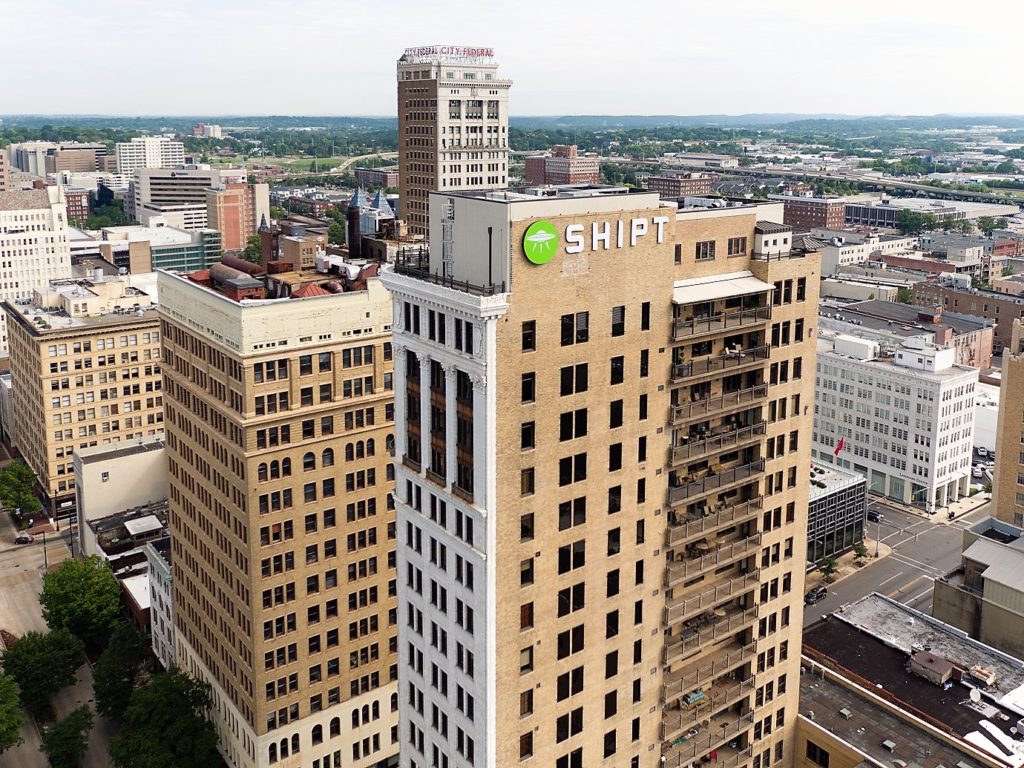
With the recent announcements of thousands of jobs coming into Jefferson County in connection with Amazon’s advanced robotics fulfillment center, DC BLOX’s data center and Shipt’s decision to keep its corporate headquarters in Birmingham, local officials are working from a playbook that has four steps, they say. It all begins with Alabama’s business climate that has been ranked as best in the United States for growth potential and workforce training by Business Facilities magazine, said Commissioner David Carrington, chair of the county’s Finance, Information Technology and Business Development Committee. The second is that Jefferson County is the economic center of the state, with the largest population and number of jobs. In 2016, companies announced they were going to create 14,500 jobs and invest $5.1 billion in Alabama. The Birmingham-Hoover metro area accounted for about 20 percent of those jobs and 25 percent of the capital investment. Jefferson County alone was responsible for 1,436 announced jobs and $506 million in capital investment. “In fact, the metro area’s gross domestic product is greater than Mobile, Montgomery and Huntsville combined,” Carrington said. “In 2017, according to the Alabama Department of Commerce, Jefferson County led the state with 2,200 new announced jobs in targeted industries.” The next step is collaboration among partners that often include the Birmingham Business Alliance (BBA), University of Alabama at Birmingham (UAB) and, if a proposed site is in a city, the city. “As in most successful projects, it was a well-coordinated community effort that led to a successful conclusion, and we’re very grateful to our partners and allies for their great work on this project,” said Lee Smith, East Region CEO for BBVA Compass and 2018 chairman of the BBA, after the area secured Amazon’s $325 million investment. “The county actively listens to the prospect’s needs and then participates in the development of an aggressive marketing plan with (those) partners,” Carrington said. Fourth, a project team is in place that “leverages our community’s assets,” Carrington said. “. . . We will talk about our enviable road and rail transportation network when talking to a distribution company; or UAB, Southern Research and Innovation Depot when talking to a STEM (science, technology, engineering and math) company; or our central, geographic proximity to Mercedes, Honda, Hyundai, Volkswagen, Kia and the soon to be open Toyota/Mazda plants when talking to an automotive supplier.” All of those steps are done under a positioning umbrella, he said. “Even if we don’t win a project, we want the company and their consultants to ‘have a good feeling’ about the community so we will be considered for a future project,” he said. Carrington pointed to the community’s Amazon HQ2 “BringAtoB” campaign. “The primary project team knew that Birmingham was at best a long shot, but, despite the odds, we put together an innovative vision and proposal for the company to consider,” he said. “While we didn’t win the headquarters, we caught Amazon’s attention and less than a year later announced an 855,000-square-foot advanced robotics fulfillment center in Bessemer.” Republished with the permission of the Alabama Newscenter.
Alabama to enforce internet sales tax collections

Alabama will begin collecting online sales taxes on Oct. 1. The Alabama Department of Revenue announced the move in the wake of the U.S. Supreme Court decision last month that states can force online shoppers to pay sales tax. The state in 2016 established regulations that remote retailers with more than $250,000 in sales in Alabama should pay tax in the state. However, the constitutionality of the rule had been in question until the Supreme Court decision. The Department of Revenue said the regulation will be enforced going forward. A number of online retailers, including Amazon, already remit taxes to the state through the Alabama Simplified Sellers Use Tax. The program allows companies to pay a flat 8 percent sales tax, instead of navigating different county and city tax rates. Republished with the permission of the Associated Press.
Amazon to create 1,500 jobs at Alabama fulfillment center
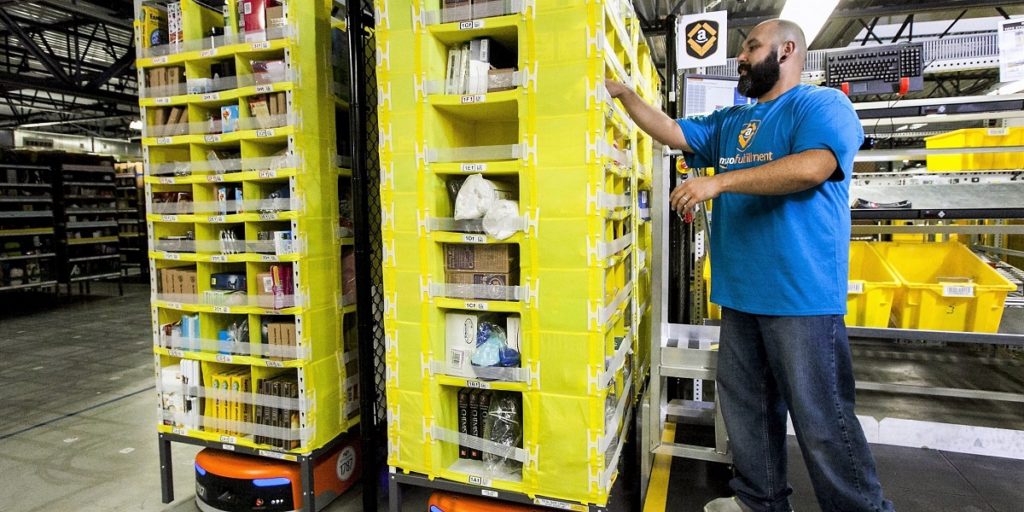
Internet retail giant Amazon confirmed plans today to open a fulfillment center in Jefferson County with 1,500 full-time employees working alongside advanced robotics technology. Amazon will build the 855,000-square-foot facility on 133 acres of property being purchased from U.S. Steel off Powder Plant Road in Bessemer, just minutes away from Birmingham. Investment in the project is expected to be $325 million. The Seattle, Washington-based company confirmed its plans for the Alabama facility today in an announcement that said the project is moving forward, following a series of public meetings with local governments. “We are thrilled to bring our first fulfillment center to the state of Alabama, creating 1,500 full-time jobs,” said Mark Stewart, Amazon’s vice president of North America customer fulfillment. “Alabama has a talented workforce and we look forward to making a positive economic impact in a state where we are committed to providing great job opportunities and an exceptional customer experience.” Employees at the Bessemer facility will work with technology created by Amazon Robotics to pick, pack and ship items to the company’s customers. “Amazon is one of the world’s most dynamic companies, and we couldn’t be more proud to see the company select Alabama for one of its high-tech fulfillment centers,” Gov. Kay Ivey said. “This facility represents good jobs for our citizens and the beginning of a long partnership that I believe will see Amazon expand and grow in Alabama in the future.” Significant impact An analysis projects that the Amazon fulfillment center will generate a significant economic impact on Jefferson County and Alabama. The center will contribute $203 million to the county’s economic output annually, while adding $123 million to the county’s GDP, according to the study prepared by the Center for Business and Economic Research in the University of Alabama’s Culverhouse College of Business. The facility will contribute $232 million to Alabama’s economic output each year and add $137 million to the state’s GDP, the study says. Bessemer Mayor Kenneth Gulley said the Amazon project represents the largest single private investment in the city’s 131-year history. As an added bonus, the company has pledged to create a tuition-assistance program for its workforce. “Amazon is bringing jobs and opportunity to our residents and students. I am particularly proud of the educational incentives Amazon will offer our young people: Get your high school diploma, work one year and receive $3,000 the next four years toward furthering your education,” he said. Growing tech jobs Greg Canfield, secretary of the Alabama Department of Commerce, said Amazon’s project perfectly aligns with a strategic emphasis to facilitate the growth of tech jobs across the state. “Amazon’s new fulfillment center in Bessemer will create a large number of high-quality jobs and feature cutting-edge automation and technological innovation,” Canfield said. “We’ve made recruiting technology-focused jobs a priority, and Amazon’s presence in the state will help us advance toward our goal.” This is Amazon’s second project in Alabama. In June 2017, the company announced plans for a $30 million “sortation center” in Mobile to accelerate delivery of online purchases. The facility will have 1,000 part-time workers during peak periods. Lee Smith, chairman of the Birmingham Business Alliance, said the successful recruitment of Amazon’s fulfillment center in Bessemer stemmed from a team effort that included a number of economic development agencies, utilities, transportation departments and others. “Amazon’s investment in our community is a big win for the Birmingham region,” Smith said. “This state-of-the-art facility will be able to accommodate an expanding workforce and a changing economy as Amazon continues to prepare for its future.” Amazon said full-time employees receive competitive hourly wages and a comprehensive benefits package, including health care, 401(k) and company stock awards starting on day one. Amazon also offers generous maternity and parental leave benefits and access to innovative programs like Career Choice, where it will prepay up to 95 percent of tuition for courses related to in-demand fields, regardless of whether the skills are relevant to a career at Amazon. Since the program’s launch, more than 16,000 employees have pursued degrees in game design and visual communications, nursing, IT programming and radiology, to name a few. Republished with the permission of the Alabama Newscenter.
Bessemer City Council and Jefferson County Commission to vote on incentives to land Amazon
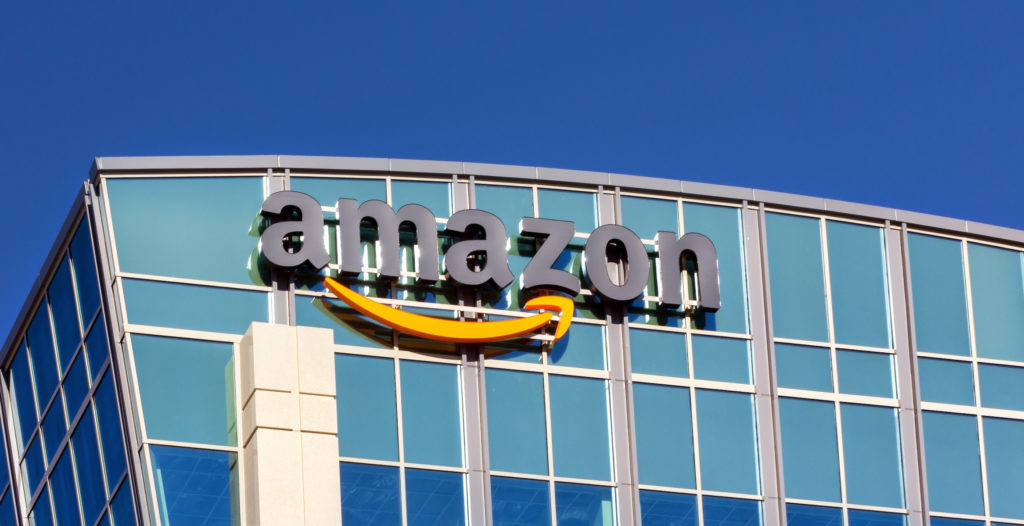
Amazon is in talks to build a warehouse near Birmingham that could create up to 3,000 jobs. Public notices show Amazon plans an 855,000 square-foot (7,900 sq. meter) fulfillment center in Bessemer. The Jefferson County Commission will vote next week on spending up to $3.3 million to fund road work and pay incentives to Amazon. The Bessemer City Council will consider giving part of the city’s occupational tax collected from Amazon employees to the company. Bessemer would cap permit fees at $200,000 and cap its annual business license tax at $5,000. Jefferson County Commissioner Jimmie Stephens tells news outlets the state will also offer undisclosed incentives. Commissioner David Carrington says the facility could open in fall 2019. The warehouse is targeted for 133 acres (54 hectares) owned by U.S. Steel. Republished with permission from the Associated Press
Travel ban case is justices’ first dive into Trump policy
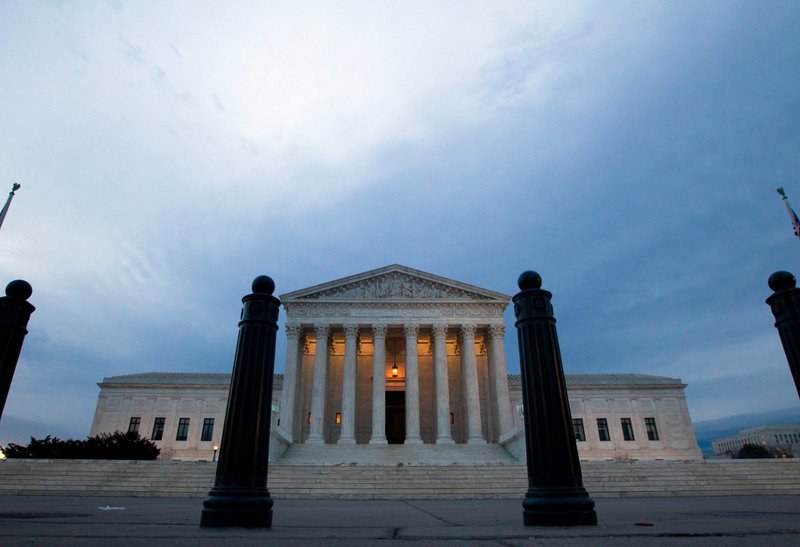
The Supreme Court has so far had little to say about Donald Trump’s time as president, even as the nation has moved from one Trump controversy to another. That’s about to change. The justices’ first deep dive into a Trump administration policy comes in a dispute over the third and latest version of the administration’s ban on travel from some countries with majority Muslim populations. Opponents of the policy and some lower courts have labeled it a “Muslim ban,” harking back to Trump’s campaign call to keep Muslims from entering the country. The high-stakes arguments at the high court on Wednesday could offer some indication about how a court that runs on respect for traditions and precedent will deal with a president who regularly breaks with convention. Apart from the campaign statements, Trump’s presidential tweets about the travel ban and last fall’s retweets of inflammatory videos that stoked anti-Islam sentiment all could feature in the court’s discussion of the travel ban’s legality. “The court could get to the right outcome without getting into the question of his tweets. But I think the president set it up so that it’s virtually impossible to ignore him when he’s shouting from the rooftops about what his purpose was in the three versions of the ban,” said Cecillia Wang, the American Civil Liberties Union’s deputy legal director. Solicitor General Noel Francisco, who will argue the administration’s case, said in a court filing that the ban is well within the president’s authority and is not based on prejudice against Islam. In a sign of heightened public interest, the court is taking the rare step of making an audio recording of the proceedings available just hours after the arguments end. One key issue will be how the court evaluates administration actions. Neil Eggleston, President Barack Obama’s last White House counsel, suggested in an online forum last week that Trump does not merit the same measure of latitude that courts usually give presidents, especially in the areas of national security and immigration. “The court will have to wrestle with how much to defer to a President who has created this record of chaos and animus,” Eggleston and co-author Amanda Elbogen wrote on justsecurity.org. Josh Blackman, a professor at the South Texas College of Law in Houston, cautioned that the court would be breaking new ground if it were to treat Trump differently from other presidents. The policy under review at the court applies to travelers from five countries with overwhelmingly Muslim populations — Iran, Libya, Somalia, Syria and Yemen. It also affects two non-Muslim countries: blocking travelers from North Korea and some Venezuelan government officials and their families. A sixth majority Muslim country, Chad, was removed from the list this month after improving “its identity-management and information sharing practices,” Trump said in a proclamation. Francisco said the Chad decision shows that the restrictions are premised only on national security concerns. He also said that the State Department has cleared more than 430 visa applicants from the affected countries for waivers that would allow them to enter the U.S. But the challengers argue that the administration cannot ask the court to ignore all that has happened. Trump’s first travel ban was issued just a week after he took office in January 2017, and was aimed at seven countries. It triggered chaos and protests across the U.S. as travelers were stopped from boarding international flights and detained at airports for hours. Trump tweaked the order after the 9th U.S. Circuit Court of Appeals in San Francisco refused to reinstate the ban. The next version, announced in March 2017, dropped Iraq from the list of covered countries and made it clear the 90-day ban covering Iran, Libya, Somalia, Sudan, Syria and Yemen didn’t apply to those travelers who already had visas. It also eliminated language that would give priority to religious minorities. Critics said the changes didn’t erase the ban’s legal problems. The 9th Circuit and the 4th U.S. Circuit Court of Appeals in Richmond, Virginia, agreed with the ban’s opponents. The 4th Circuit said the ban “drips with religious intolerance, animus and discrimination.” The 9th Circuit ruled that Trump violated immigration law. The third version is indefinite, unlike the other two, and the administration said it is the product of a thorough review of how other countries screen their own citizens and share information with the U.S. It fared no better than its predecessors in the lower courts, but the Supreme Court said in an unsigned order in December that it could take full effect while the legal dispute continues. The justices said nothing about the substance of the policy, either in December or in earlier actions involving the ban. Now, though, they are confronted with the administration’s view that Trump has broad discretion to impose limits on immigration and that the courts don’t even have a role to play. The Justice Department has said throughout the course of the legal fight that the lawsuits challenging the policy should be dismissed without ever reaching the challengers’ claims. The administration says that foreigners have no right to enter the United States and no right to challenge their exclusion in American courts. Supporting briefs for the ban’s challengers dwarf filings on the administration’s side. Retired high-ranking military officers, former Republican officeholders, Catholic bishops, Amazon, Facebook and 113 other companies, the children of Japanese-Americans who were held in internment camps during World War II and more than a dozen mainly Democratic-led states are among those calling on the court to strike down the Trump policy. The administration’s supporters include roughly the same number of Republican-led states, as well as conservative groups and Jay Sekulow, one of Trump’s personal lawyers. A decision in Trump v. Hawaii, 17-965, is expected by late June. Republished with the permission of the Associated Press.


